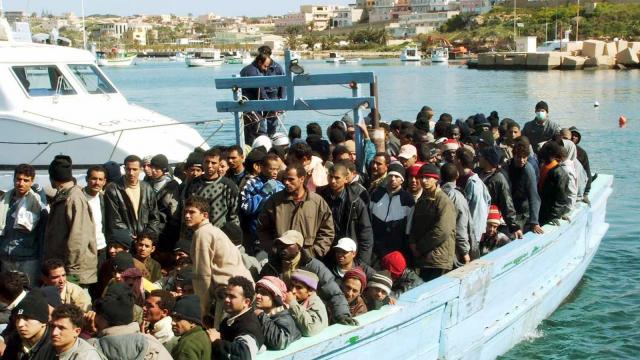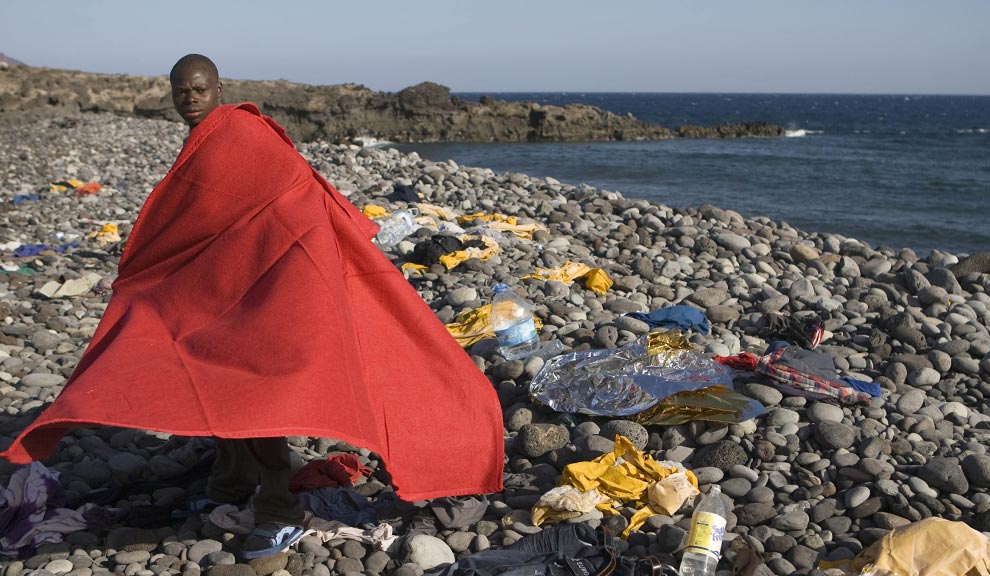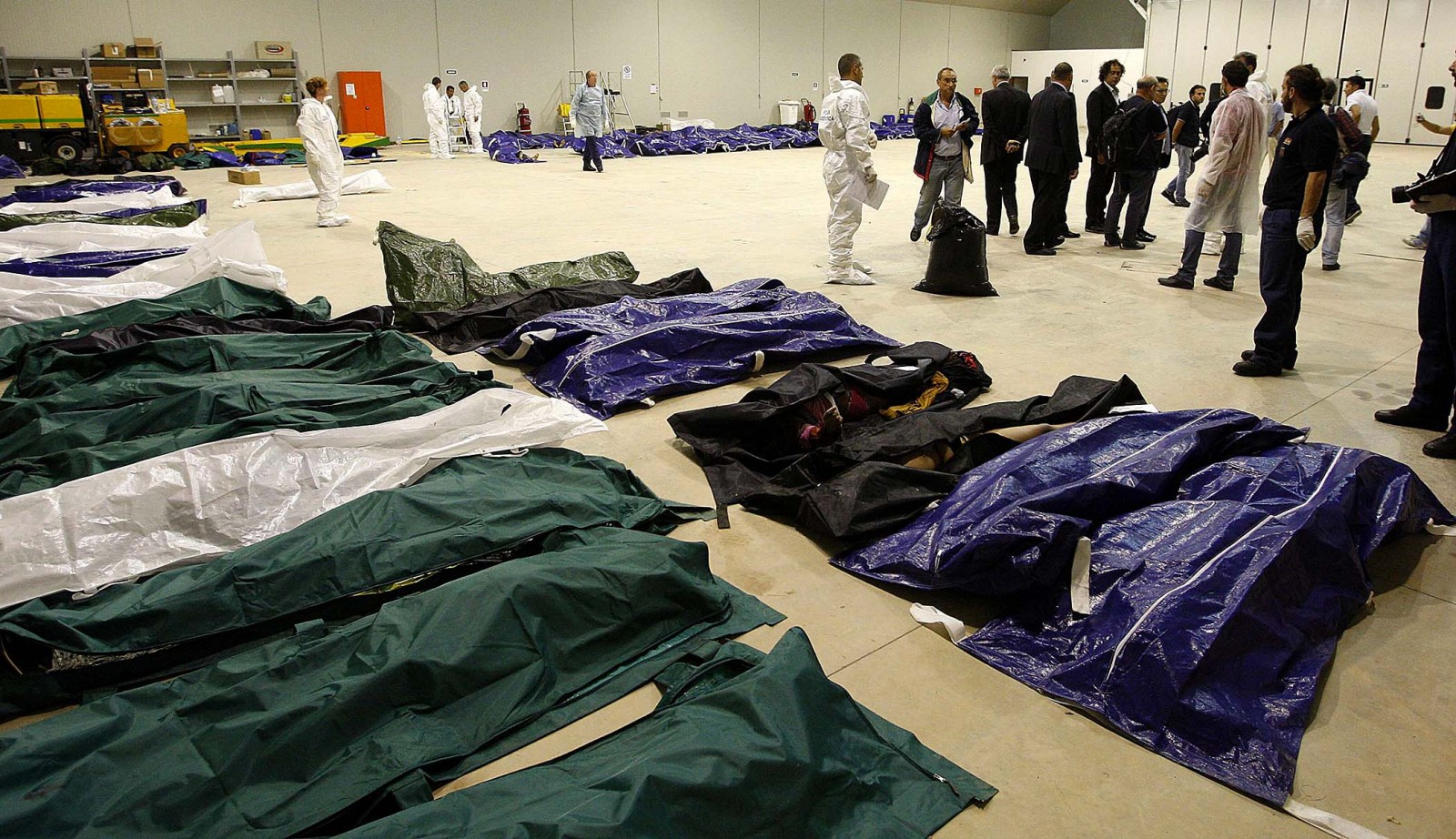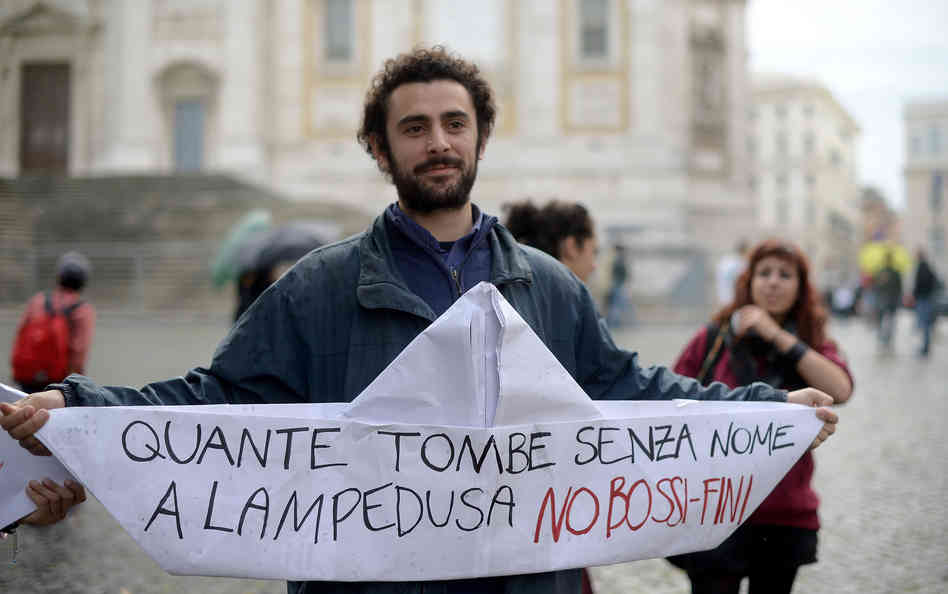
Following the October 3 deaths of around 400 migrants off the Italian island of Lampedusa, European leaders meeting in Brussels on Thursday have promised to put immigration on the agenda alongside scheduled discussions on growth, competitiveness and fighting unemployment. But as long they hold to the illusion that interests of migrants are at odds with those of "native" workers, their policies will continue to put lives at risk – and will do nothing to help the EU economy.
Over the past decade, Europe has invested more and more money on keeping non-Europeans out. Frontex, created in 2005 to police Europe’s external borders, saw its budget balloon from €19 million in 2006 to €85 million in 2012. But analysts say this approach does little to reduce overall immigration figures and merely plays into the hands of those ready to exploit irregular immigration, from people-smugglers to unscrupulous employers.
“Member states seem determined to make accessing EU territory, without being detected, stopped and turned back, impossible, however elusive that goal might be,” says Nina Perkowski, a PhD candidate at Edinburgh University focusing on EU external border controls.
“At the same time, the vast majority of refugees who have made it to Europe and were granted refugee status [have relied] on irregular, hidden routes.”
Such routes have claimed close to 20,000 lives in the Mediterranean over the last two decades. While Europe has ignored majority of these deaths, the number killed in a single shipwreck this month prompted the European Council to call for an extra €30 million in funds for Frontex this year, while Italy has sent ships, helicopters and drones out to patrol the waters between Sicily and Libya.
These measures may be targeted at averting further deaths, but they look a lot like the militarization of Europe’s external borders. It’s an image that serves European politicians well as they compete with far-right parties that have used fear of an immigrant invasion make gains across Europe in recent years.
Austerity policies have laid waste to welfare states and Europeans struggling to support their own families feel increasingly protective of the little they have. But far from consuming Europe’s limited wealth at the expense of locals, research shows that immigration does more good than harm to destination economies.
“We found that immigrants are not a burden on the welfare state,” said Thomas Liebig, one of the authors of a report published last month by the OECD’s International Migration Division, looking at the economic impact of immigration in Europe. “That was a quite surprising finding, given the debate in many countries. Migrants, on average, put more into the public purse than they take out.”
Some migrant workers contribute in key sectors like digital technologies (the development of which is also on the agenda at this week’s EU summit) where Europe lacks homegrown talent. Others take jobs shunned by locals, including domestic work and care of the elderly. That, in turn, the OECD found, can free up women who would who might otherwise be doing this work unpaid, to move into profitable roles improving their own financial situation while contributing more to the wider economy. And with Europe’s aging population, some believe immigration is essential to avert a demographic crisis.
“It will not be long until we start to feel the impact of our aging population and shrinking workforce,” Michele Cercone, a spokesperson for European Commissioner for Home Affairs, Cecilia Malmström, told Occupy.com. “The European Union needs a strong and coherent migration policy that responds to these needs. Today, and even more so in the future, migration and mobility are crucial for growth and for Europe's economic recovery.”
And despite the myth propagated by the British press of foreigners stealing British jobs, a study by the UK’s National Institute of Economic and Social Research last year examining national insurance data found “no association between migrant inflows and claimant unemployment,” and “no evidence of a more adverse [effect] during periods of low growth or the recent recession.”
The dominant narrative on immigration, which conjures images of hordes of desperate outsiders poised to overwhelm Europe the moment the continent lets down its defense, ignores a major force driving immigration: the supply and demand of cheap, flexible labor. Even as crisis-driven fear of immigration rose, net migration fell from close to 2 million in 2007 to less than 900,000 in 2011. In some of the countries hit hardest – including Ireland, Greece and Spain – net migration remains negative.
Still, the demand for migrants to do Europe’s ‘3D jobs’ (difficult, dirty and dangerous) hasn’t vanished. “On average there may be less need currently for labor migration in many countries than prior to the crisis,” says Liebig. “But there continue to be some labor needs at all skill levels in European countries and demographic aging is likely to result in further needs.”
Hein de Haas, co-director of the International Migration Institute at Oxford University writes, “The only way to reduce immigration is to wreck the economy.” Some would argue that’s something EU leaders are doing anyway, despite European Council President José Manuel Barroso referring to “clear signs of recovery” in a letter addressed to EU leaders ahead of Thursday’s summit. Either way, the EU’s strategy for recovery has focused heavily on enforcing a neoliberal economic regime, which may itself increase demand for migrant labor.
“Years of neoliberal policies in the form of privatizing and de-regularizing labor markets have hugely expanded the demand for immigrant labor for temporary, unattractive and low-paid jobs in cleaning, catering, agriculture, factory work and care that native workers typically shun,” de Haas writes.
Meanwhile, restrictive immigration policies can work to reduce the cost of labor even further, by forcing migrants underground. In the years before the debt crisis hit, ‘illegals’ flocked to work in Spain’s vastly over-inflated construction industry and were among the first to be hit when the debt bubble burst. Many now work in Spain’s agricultural sector, where they are hired a day at a time for backbreaking labor that can pay as little as €20. Similar working conditions exist in southern Italy.
Still, few even in these dismal circumstances are ready to give up and head home, given the investment laid out – in many cases, thousands of euros paid by extended family who then wait for remittances to be sent home – and the risks taken to reach Europe. Migrants who might otherwise make return trips to Europe as demand for labor rises and falls, are more likely to stay put through good times and bad – or at least until they have earned enough to cover the costs of their original journey. For day laborers in Calabria’s tomato fields, that could be a very long time.
Meanwhile, underground economies cost the state in lost tax revenues. A 2009 report by the London School of Economics for the Greater London Authority estimated that regularizing London’s 229,000 irregular migrants could yield £596 million.
Carnegie Endowment economist Uri Dadush argues that protecting migrant workers from exploitation can even help to regulate the flow of migration: “If employers are obliged to observe the minimum wage, hire only documented workers and give them the same treatment as everybody else, then you basically raise the cost of [employing] a migrant to a reasonable level and economics does the rest – employers will only employ so many people.”
If migration is accepted as inevitable – in Perkowski’s words, “a human phenomenon that has existed throughout history” – then managing its flow through legal channels benefits everyone. “You basically create a virtuous circle,” Dadush explains, “where the migrant is regular and contributes to the public purse, you have the application of labor standards and normal human rights throughout the economy, and you reduce the demand for migrants – if that's what you are so worried about.”
“I happen to be less worried,” he adds, “but if you’re really worried about having so many foreigners around you, one way [to address] that is to make sure that labor regulations are observed.”
3 WAYS TO SHOW YOUR SUPPORT
- Log in to post comments














